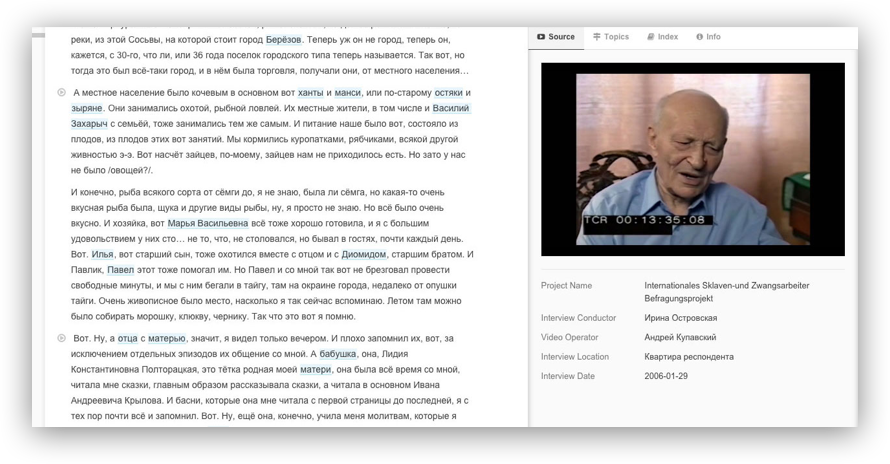Graham Smith writes (31 December 2021), “Three days ago, the Russian courts ordered the liquidation of Memorial International. He argues “that banning Memorial should be condemned by all oral historians“.
Three decades on from the end of the Soviet Union, the Russian state is trying to outlaw historical research into the crimes of Stalinism. On December 28th, the country’s Supreme Court issued a verdict confirming a government recommendation made a month earlier that Memorial be shut down for supposedly acting on behalf of “foreign agents”.
Memorial International, along with its affiliated Oral History Centre, has conducted several oral history projects, including the Ostarbeiter oral history archive, beginning in the 1980s. More recently they have been processing interviews collected between 1991 and 1998 and have identified several subcollections or themes including family history, Perestroika journalists, and Arbat intelligentsia. In addition, Memorial has significant collections of memories of the Gulag and dissent in the USSR, databases of victims of Stalinism, as well as records of more recent human rights abuses. All this is threatened.

Fourteen years ago, Irina Flige, the chairperson of the St Petersburg Memorial group, was amongst those who were criticising the Russian government for covering up state-sponsored terrorism while emphasising its victory over fascism and the modernisation of the former Soviet Union. In 2008, Memorial made an international appeal in which the Memorial’s leadership complained,
instead of a serious nationwide discussion about its Soviet past, the Soviet State patriotic myth with small changes is reviving. This myth views Russian history as a string of glorious and heroic achievements.[1]
Vladimir Putin, President of the Russian Federation and former KGB officer, has recently accused Memorial of violating its “humanistic ideals” because the organization, had included the names of three Nazi collaborators on its website, an error that was swiftly rectified. Putin’s charge was repeated in this week’s court session when the state prosecutor, Alexei Zhafyarov, pointed to Memorial’s crime of criticising state authorities and distorting the memory of the Great Patriotic War. Zhafyarov further noted that Memorial had speculated about the terrorism of the USSR while rehabilitating Nazi criminals.

There will be oral historians who have political differences with Memorial, especially given the connections Memorial’s leadership has with Russia’s liberal opposition. However, this is a key moment in history. The decision to ban Memorial and its branches within Russia is the latest exchange in the long-running history wars that have raged within the country for more than three decades. Memorial was founded in the late 1980s with the aim of uncovering the crimes of Stalinism and the organisation continues to be one of the most obvious targets of the conservative leaders of the ruling United Russia party who have leaned on nationalistic historical myths to maintain electoral support.
The banning is a part of a larger attempt to rehabilitate Stalinism. A failure to support Memorial aids that broader project.
This blog post will be updated considering future developments.
Memorial November statement: http://basees.org/news/2021/11/30/defend-memorial-statement-against-the-intended-closure-of-memorial
[1] For more on the use of Memorial oral histories see the work of Nanci Adler: https://www.niod.nl/en/staff/nanci-adler

Please can you tell me, is there a petition to sign or contribute to in some way?